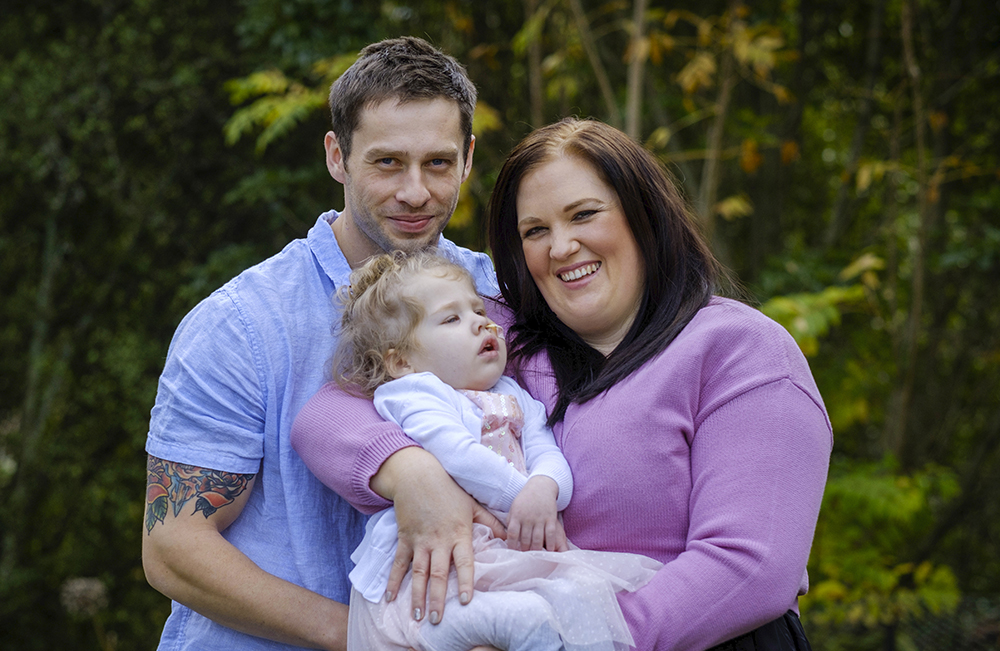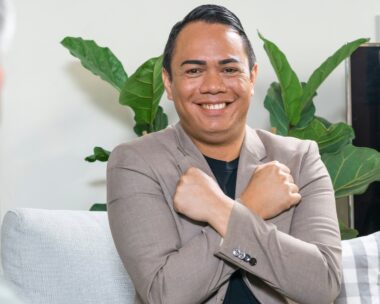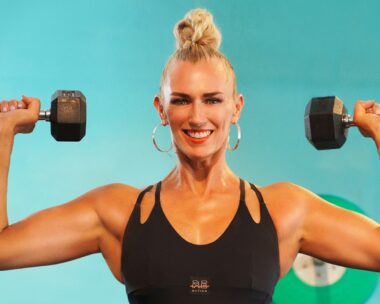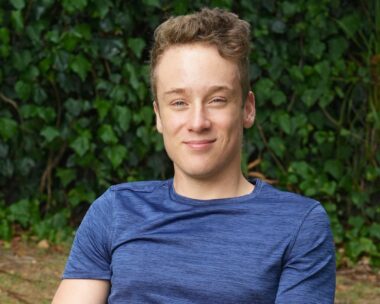When doctors told Erin Booth and Eryn Dyke their precious daughter Indie wouldn’t survive a severe brain injury, they prepared to farewell her. But now she’s survived against the odds, her devoted parents are giving their all to ensure she lives her best life.
They’ve moved from the Kāpiti Coast to Hamilton to be closer to Erin’s parents and Eryn has become Indie’s paid caregiver, giving her twice-daily physical therapy, which has the two-year-old moving in ways no one thought possible.
“We want her to have the best life she can – a life worth living,” says dedicated dad Eryn. “If she’s going to refuse to give up, then so are we.”
‘If she’s going to refuse to give up, then so are we’
Erin, 32, and Eryn, 31, met in a Wellington nightclub seven years ago, laughing about sharing a first name. They eventually moved into together and welcomed their eldest daughter, Havana, now four, and then Indie.
Nine weeks after she was born, Indie had a seizure and was raced to Wellington Hospital, where she was diagnosed with the rare genetic disorder tuberous sclerosis, which causes noncancerous tumours to grow in many parts of the body and has no cure.
Because Indie’s tumours were in her brain, it meant finding the right medication to stop future seizures. While this took a few weeks, Indie bounced back and became so active, she was nicknamed “Dennis the Menace”!
By then, Erin was pregnant with the couple’s third child, son Riley, who’s nearly a year old, and all seemed to be well with Indie until she caught a virus in March 2022.
Knowing tuberous sclerosis raised her risk of febrile seizures, they kept a watchful eye on Indie. Erin was off to work as a police call-taker, but went into Indie’s room to check she was OK because she was sleeping later than usual.
Big sister Havana dotes on Indie and little brother Riley.
“When I turned the light on, she was surrounded by a huge wet patch,” tells Erin. “I rolled her over – her lips were blue, she was jerking and there was green stuff coming out of her nose.”
Once again, Erin found herself heading to Wellington Hospital as paramedics worked frantically on Indie. After 48 hours, the pair were flown by air ambulance to Auckland’s Starship Children’s Hospital, where she was told Indie wouldn’t survive.
“The neurologist said the swelling in her brain was so severe, her injury wasn’t survivable. I couldn’t call Eryn because I was in such a state.”
Eryn’s mum broke the news to him. He recalls, “I just sat in silence. I didn’t talk for ages because I was in such shock, then I broke down. I couldn’t fathom that I had a child who was dying. I’d never felt that kind of pain in my life.”
Eryn and Havana travelled to Auckland to farewell Indie. Days later, doctors asked to see Erin and Eryn, who thought they would be advised to turn off Indie’s life support.
Instead, a doctor told them, “We don’t know what’s happened, but on Monday, Indie wasn’t breathing on her own and now she is. This should have killed her, but some people’s bodies just refuse to give up.”
Because Erin was pregnant, Eryn stayed with Indie for a further 81 days at Starship, then Wellington and Waikato Hospitals, as doctors sought a drug regime that would allow Indie’s brain to heal.
He recalls days where his daughter screamed so loudly, it could be heard from the other end of the ward. “I don’t know how I did it and there were a lot of days when I cried too, but I love her, so I sat there, cuddled her and did what I could.”
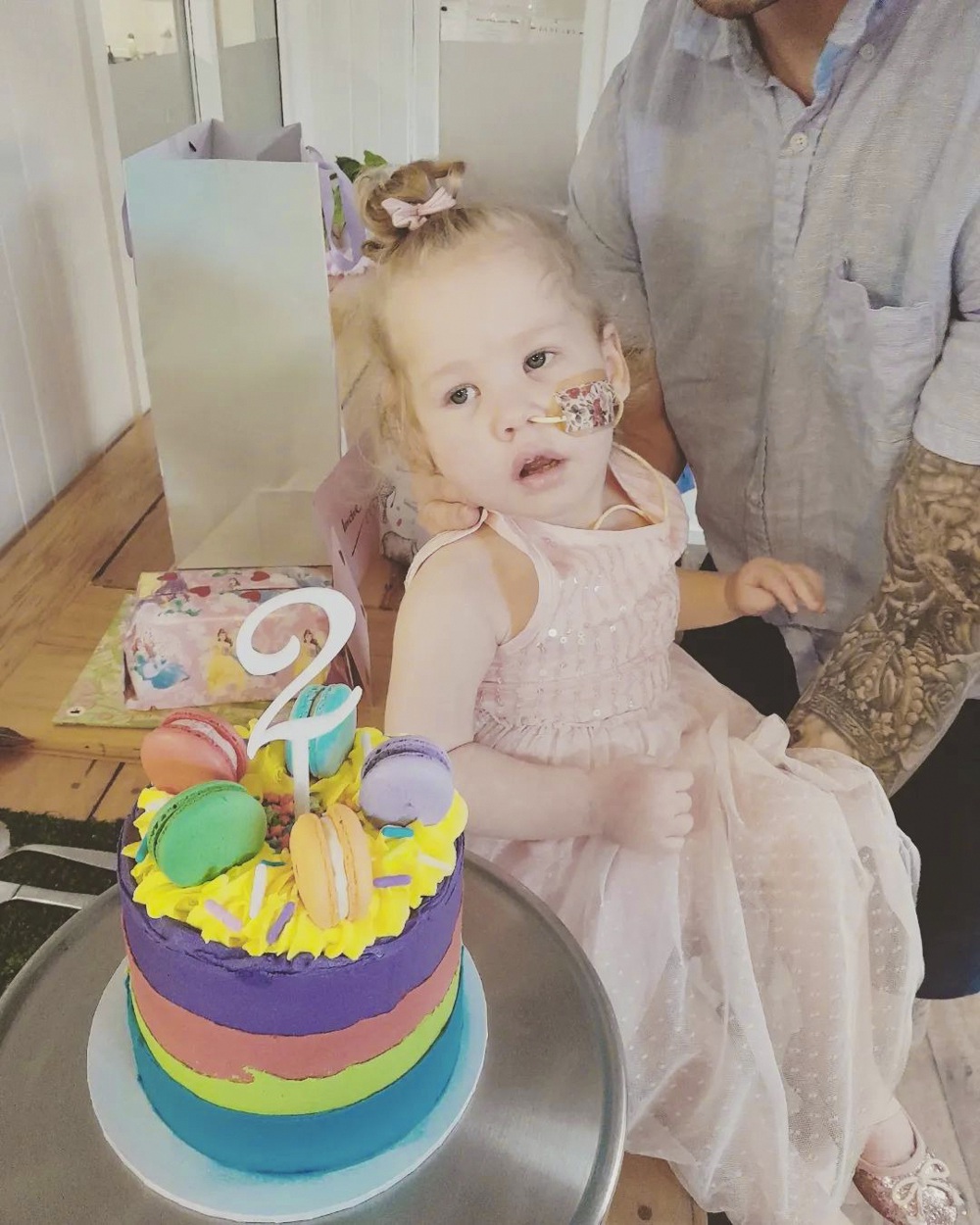
Dad Eryn and mum Erin celebrate all of Indie’s milestones.
Heavily medicated, Indie was eventually well enough to return to the family’s new home in Hamilton and Riley was born. They’d been told Indie might not walk, talk or eat again, but her vision and hearing were fine. While Erin looked after newborn Riley, Eryn focused on Indie’s care, administering up to nine doses of medication three times a day.
“But we thought there must be more we could do for Indie,” says Erin. “One night, I was googling and discovered the Brain Injured Children’s Trust. I emailed them in the middle of the night, explaining what had happened to Indie and asking if they could help.”
The trust told them about the neuro-developmental therapy run by Melbourne-based brain-injury therapist Ian Hunter, who devised a programme for Indie, which Eryn takes her through.
“It’s definitely working for her,” he says. “Because she’s so young, her brain has potential. It’s damaged, but it can rewire. We’re hoping she’ll be able to crawl.”
Indie now eats puréed food, loves books and bathtime with Havana and Riley, smiles and responds to her parents, and can lift her head when lying on the floor.
“I keep my hopes up,” says Eryn. “You can’t keep your head in the sand or think it’s never going to change. I’ve seen some amazing things happen with kids.”
